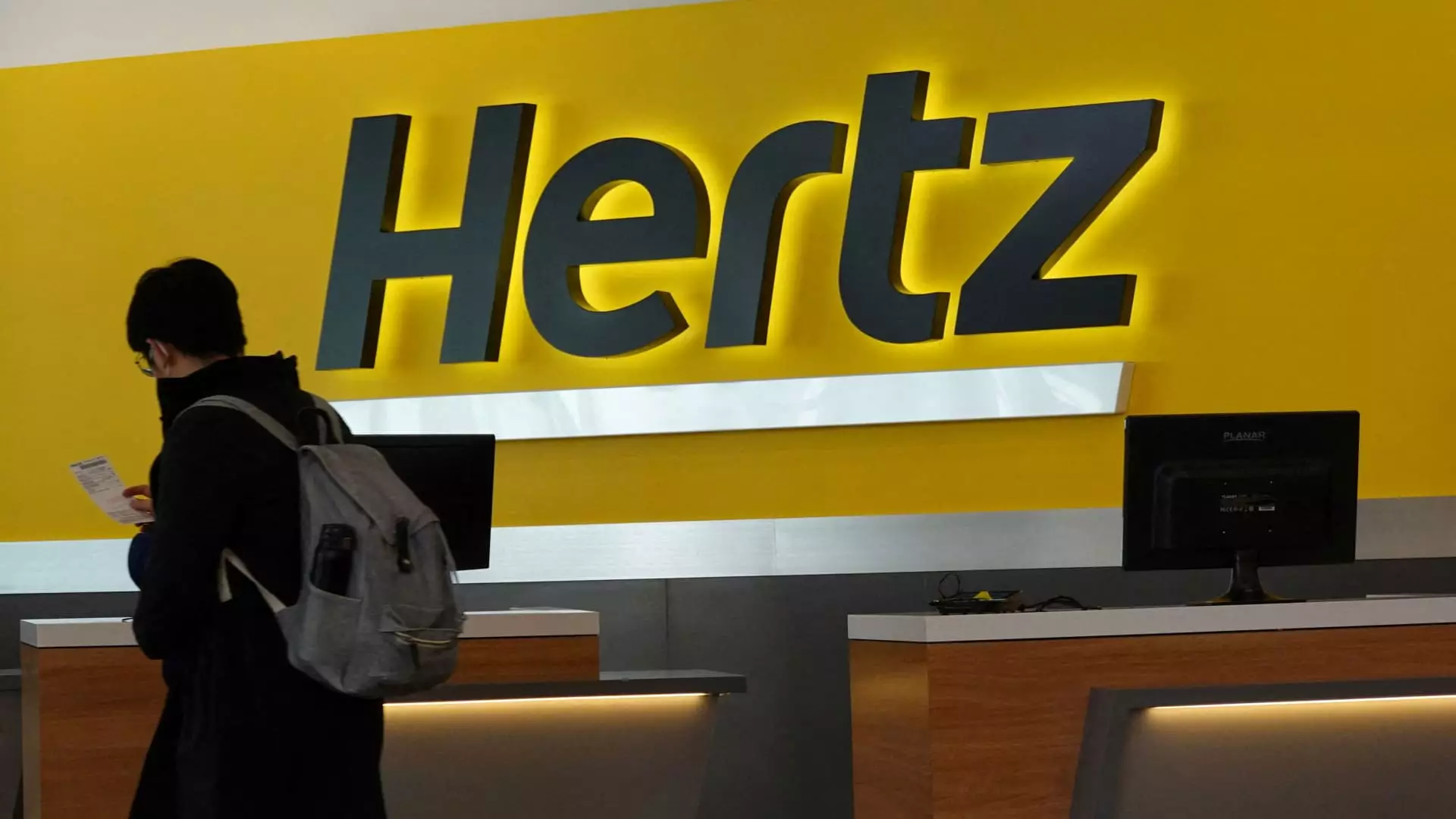In a shocking revelation that set the financial world abuzz, Hertz Global’s shares witnessed a catastrophic plunge on Tuesday, descending over 20% in early trading after the company unveiled disappointing first-quarter earnings alongside a staggering $250 million stock offering. This abrupt downturn served as a harsh reminder of the volatile nature of the rental car industry, exacerbated by external economic pressures and internal missteps. While Hertz had previously embraced an optimistic outlook, the recent results called into question the company’s financial viability and strategic foresight, leaving many investors feeling anxious and betrayed.
Analyzing the Earnings Report
Hertz’s dismal earnings report, which reflected a loss of $1.12 per share versus the anticipated loss of 97 cents, sent shockwaves across financial markets. The rental car titan also reported automotive revenues of $1.81 billion, falling short of the expected $2 billion. Such performance reflects not just operational inefficiencies but also a glaring disconnect between the company’s projections and the harsh reality that many companies are grappling with in the current economic climate.
The announcement of a stock offering sent the stock into a tailspin, prompting concerns about dilution and a lack of confidence in Hertz’s ability to reverse its fortunes swiftly. This strategic move, framed by CFO Scott Haralson as a necessary step towards deleveraging, instead accentuated shortcomings rather than highlighting potential growth.
Precarious Market Conditions
Moreover, the broader market dynamics significantly impact Hertz’s strategy moving forward. The company’s plans to reduce their rental fleet amid lower bookings—exacerbated by President Trump’s auto tariffs—has drawn scrutiny from not just analysts but also potential customers. The reality is that with consumer sentiment waning and tourism falling short of pre-pandemic highs, such caution may backfire, leaving Hertz vulnerable in an oversaturated market that is increasingly reliant on agility and responsiveness.
With Hertz poised to offer fewer cars for rent, the risk is not only about immediate revenue losses but the long-term brand perception as well. As CEO Gil West emphasized during the quarterly call, the company is prioritizing fleet reductions alongside cost management. However, this begs the question: Is this truly a sustainable approach, or merely a temporary salve for deeper financial wounds?
Internal Strategies and their Implications
The “Back-to-Basics Roadmap” introduced by Hertz aims to redirect efforts toward optimizing vehicle utilization and enhancing profitability through fleet pruning. Such moves, while seemingly rational, raise significant concerns regarding demand. If the company cannot cultivate a robust and consistent customer base, then restricting supply could lead to further marginalization in a competitive environment.
Interestingly, Hertz did highlight some noted improvements, such as a $92 million reduction in direct operating expenses, and ambitious targets such as lowering depreciation per unit. Nonetheless, these accomplishments feel overshadowed by the overarching challenge the company faces with demand generation. As Barclays analyst Dan Levy aptly pointed out, despite some operational improvements, the immediate outlook remains troubling, with substantial risks looming ahead.
The Implications for Shareholders and Future Outlook
For investors involved with Hertz, this is undoubtedly a disheartening turn of events. The stock had previously surged upwards of 90% earlier this year, mostly driven by Bill Ackman’s Pershing Square Capital Management acquiring a notable stake. However, the current earnings report and subsequent stock performance present an unsettling dichotomy between past optimism and present reality.
The hope of achieving returns through strategic pivots and operational efficiencies is now juxtaposed against persistent market uncertainties and shifts in consumer behavior. As Hertz’s leadership attempts to navigate these challenges, it remains to be seen whether the company’s internal strategies will be enough to rally investor support or if they will merely exacerbate the issues at hand.
In a landscape where adaptability and foresight are critical, Hertz finds itself at a crossroads that many traditional businesses are facing; it must evolve to thrive, lest it risks becoming another cautionary tale in the annals of corporate America. The stakes have never been higher for Hertz, and for many investors, the road ahead looks fraught with peril.

